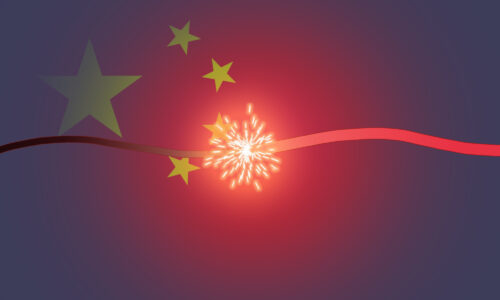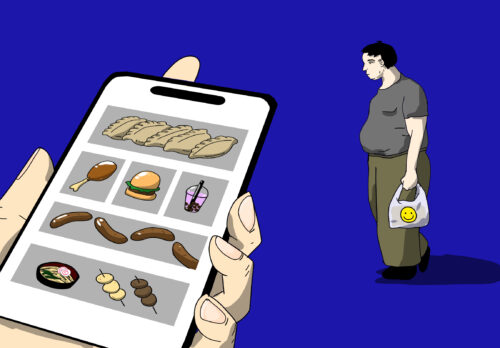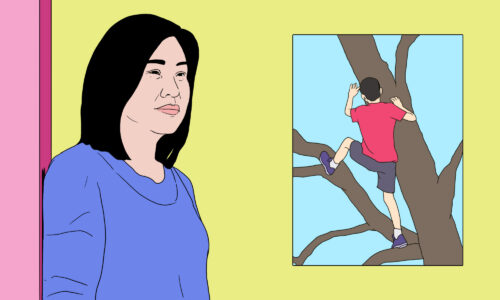Review: ‘The Lettuce Diaries’ by Xavier Naville
Believe it or not, this is a book that goes beyond the exploits of a produce entrepreneur, offering an analysis of Chinese agriculture and rural working practices.

The degree to which books on doing business in China emphasize the country’s uniqueness depends on what you might call the Friedman curve. Airport hogwash designed to sucker newcomers on business practices and venerable customs of the Orient are the most insistent on China’s differences. Next are the consultancy books that downplay all the differences — the world is flat, see? Then finally there are books describing time individuals have spent in the trenches which describe in granular detail just how different everything truly can be — and locating the economic and cultural pressures behind these contrasts.
This last category — which include for example Mr. China by Tim Clissold, A Decent Bottle of Wine by Chris Ruffles, and The China Twist by Wen-Szu Lin — often have their own formula. The writers emphasize their early bafflement and naivety, the better to show their subsequent growth. You can almost imagine a film sequence: the early bad calls and misunderstanding, the key event that turns things around, and then a glorious stirring montage as things finally start to come together…before the writer heads off to somewhere nicer, protesting their lifelong affiliation with the poor villagers of wherever they had been.
So it feels at the start with The Lettuce Diaries: How A Frenchman Found Gold Growing Vegetables In China, and I wondered if this was to be another pro-amateur book filled with yet more ripping yarns of Chinese oddities and that prototypical narrative arc. But Xavier Naville is both more self-aware and more ambitious than that, and so his book aspires rather beyond the exploits of one fairly small-potatoes entrepreneur toward a wider analysis of Chinese agriculture, rural working practices, and the near-impossibility of businesses to deliver what they say when subcontracting responsibility. Naville may not be a professional writer — his scene-setting and characterization are not great — but on the pro-am scale he is near the top. In particular, he is very good at describing business cultures and the economic rationales that compel them, and he has a fine sense of his own failings — rather beyond the self-praise that masquerades as criticisms. (Like, dude, you work too hard, and you are too kind — we get it.) And he has done his homework: there’s a fair amount of research underpinning his discussions of Chinese agriculture, making this a far broader tale than one man’s struggle to run a small company.
So what’s Naville’s story? (Listen to him tell it on an episode of China Corner Office, part of the Sinica Podcast Network.) He describes how he came almost on a whim to Shanghai in 1997, aged 27. He rather relishes describing Shanghai as rundown and dreary (he’s something of a clothes snob):
The buildings of Shanghai resembled sad grey giants, with air-conditioning units covering them like warts. Heavy clouds leaking an incessant drizzle draped the tower tops. Rugged men in drab navy-blue suits that were too big for them shambled along busy roads, their hands in their trouser pockets and their jacket forearms shiny with wear.
After working for Compass Group managing canteens in 70 countries, he moves to Shanghai to work for a subsidiary, Asiafoods, which aims to deliver meals to schools and workplaces across China, just as it did across the world. But China — of course — proves a tougher nut to crack, with local tastes and cooking preferences underestimated. But that’s just the start: Asiafoods then spins off a vegetable processing business, Creative Foods, with KFC (then with just around 20 outlets across the nation) almost its only customer. Naville becomes its CEO (as well as essentially its CFO and operations manager), and he leads us through all the difficult stages of building a business, from ever-demanding clients to recalcitrant contractors and, were that not enough, a hostage situation when he takes too long to pay farmers.
The book is enlivened both by the inherent drama of doing business in China — where relationships are everything and contracts just paper — and by Naville’s candor regarding his failings. Sometimes he seems almost self-flagellating, though equally such admissions are essential to the narrative arc of early failure, belated realization, then gradual success. However, Naville is I think honest about his mistakes and failure to comprehend Chinese business. His tale of being humiliated at KFC when Sam Su (the chairman of Yum! China) gives him a public dressing-down makes your ears turn red in secondhand embarrassment.
Perhaps the most interesting chapter is when a partner in the business, a Hong Konger named Kevin, attempts to stage a coup and oust Naville. As he describes it, you can see it coming a mile off, but of course this is with the benefit of hindsight; no doubt at the time he was blindsided. Naville nicely captures the creeping diminution of authority and his own self-doubt about whether to fight back. It’s rather a thrilling story of attack and counter-attack, insurgency and counter-strikes. You are with Naville, cheering him on.
Another key chapter is on Chinese agricultural culture and economic imperatives. He uses the term “involution” (a word he attributes to historian Philip C. C. Huang; the term is only adjacently related to the Chinese buzzword “involution,” 内卷 nèijuǎn, that went viral last year) to describe how Chinese farmers, buffeted by huge gales of tumultuous history, cling to what seems like inefficient practices, seeking to get the most output from their relatively tiny acreages and refusing to budge as he appeals to them to modernize their methods. With labor cheap and plentiful, advanced technologies and increased efficiencies, there were unwanted extravagances. Similarly, the wrenching of farmers from ancestral plots into Mao-era communes, and then the market reforms under Dèng Xiǎopíng 邓小平, loosened standards of care, so that fertilizers and pesticides were used with no consideration of polluting effects on the soil. Naville’s exhortations to improve standards for higher possible prices sound utterly alien to them.
The Lettuce Diaries has its weaknesses: Naville doesn’t quite bring the other characters to life, not even his main antagonist Kevin or his closest colleague Mike. Some of his comments on other people sometimes feel gauche, as when he describes a woman in her 50s as still having “some of the shine that once would have made her pretty.” And the narrative isn’t quite satisfyingly shaped: Naville eventually cashes out and makes a significant sum, but then continues on for two more chapters on subsequent ventures and an eventual move into business consultancy. Life is untidy, but books arrange things into neat patterns, and I think he would have been wiser to have ended on being bought out.
But for all that, The Lettuce Diaries is one of the best of its kind that I have read. The discussions of Chinese working culture and agriculture ring true: this is a man, you feel, who has literally spent his time in the weeds and come back to report on it. His frustrations with staff, their disinclination to share their true feelings, their indifference to his motivational speeches, and his difficulty in forming bonds with employees who insist on treating him as The Boss, all carry genuine feeling. Similarly, the difficulties of entrepreneurship — having to make payroll, the pressures exerted by everyone from staff to government officials to customers, health scares, kidnappings, blackmail and hand grenades lobbed by disgruntled former employees — are well conveyed. (Although Naville doesn’t really describe the broader environment: he has his own story, statistics, and sector analyses, and doesn’t flesh out the story into the environment of China’s Wild West early-2000s period.)
Naville is, by the end (he rather proudly notes), someone “more Chinese than the Chinese themselves,” and is able to show how Chinese farmers think. For that alone, the book has considerable value. But it’s also a story of entrepreneurialism in the best sense: of trying to grow something and to instill a culture. The soil on which Naville attempted this was particularly stony, and he toiled hard in doing so. This sense of reality, of dirt under the fingernails, gives it a vividness and piquancy that easily make up for its occasional instances of authorial clumsiness.
For more book reviews, see our Reading China archive.







